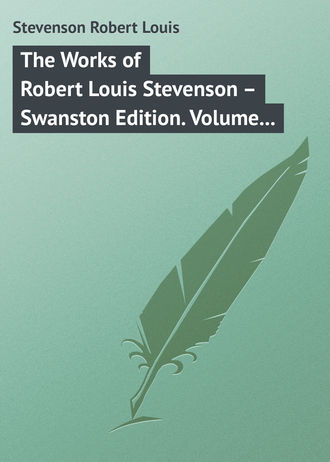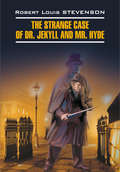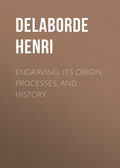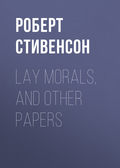
Роберт Льюис Стивенсон
The Works of Robert Louis Stevenson – Swanston Edition. Volume 3
Equally pleased with a watch, a coach, a piece of meat, a tune upon the fiddle, or a fact in hydrostatics, Pepys was pleased yet more by the beauty, the worth, the mirth, or the mere scenic attitude in life of his fellow-creatures. He shows himself throughout a sterling humanist. Indeed, he who loves himself, not in idle vanity, but with a plenitude of knowledge, is the best equipped of all to love his neighbours. And perhaps it is in this sense that charity may be most properly said to begin at home. It does not matter what quality a person has: Pepys can appreciate and love him for it. He “fills his eyes” with the beauty of Lady Castlemaine; indeed, he may be said to dote upon the thought of her for years; if a woman be good-looking and not painted, he will walk miles to have another sight of her; and even when a lady by a mischance spat upon his clothes, he was immediately consoled when he had observed that she was pretty. But, on the other hand, he is delighted to see Mrs. Pett upon her knees, and speaks thus of his Aunt James: “a poor, religious, well-meaning, good soul, talking of nothing but God Almighty, and that with so much innocence that mightily pleased me.” He is taken with Pen’s merriment and loose songs, but not less taken with the sterling worth of Coventry. He is jolly with a drunken sailor, but listens with interest and patience, as he rides the Essex roads, to the story of a Quaker’s spiritual trials and convictions. He lends a critical ear to the discourse of kings and royal dukes. He spends an evening at Vauxhall with “Killigrew and young Newport – loose company,” says he, “but worth a man’s being in for once, to know the nature of it, and their manner of talk and lives.” And when a rag-boy lights him home, he examines him about his business and other ways of livelihood for destitute children. This is almost half-way to the beginning of philanthropy; had it only been the fashion, as it is at present, Pepys had perhaps been a man famous for good deeds. And it is through this quality that he rises, at times, superior to his surprising egotism; his interest in the love affairs of others is, indeed, impersonal; he is filled with concern for my Lady Castlemaine, whom he only knows by sight, shares in her very jealousies, joys with her in her successes; and it is not untrue, however strange it seems in his abrupt presentment, that he loved his maid Jane because she was in love with his man Tom.
Let us hear him, for once, at length: “So the women and W. Hewer and I walked upon the Downes, where a flock of sheep was; and the most pleasant and innocent sight that ever I saw in my life. We found a shepherd and his little boy reading, far from any houses or sight of people, the Bible to him; so I made the boy read to me, which he did with the forced tone that children do usually read, that was mighty pretty; and then I did give him something, and went to the father, and talked with him. He did content himself mightily in my liking his boy’s reading, and did bless God for him, the most like one of the old patriarchs that ever I saw in my life, and it brought those thoughts of the old age of the world in my mind for two or three days after. We took notice of his woolen knit stockings of two colours mixed, and of his shoes shod with iron, both at the toe and heels, and with great nails in the soles of his feet, which was mighty pretty; and taking notice of them, ‘Why,’ says the poor man, ‘the downes, you see, are full of stones, and we are faine to shoe ourselves thus; and these,’ says he, ‘will make the stones fly till they ring before me.’ I did give the poor man something, for which he was mighty thankful, and I tried to cast stones with his horne crooke. He values his dog mightily, that would turn a sheep any way which he would have him, when he goes to fold them; told me there was about eighteen score sheep in his flock, and that he hath four shillings a week the year round for keeping of them; and Mrs. Turner, in the common fields here, did gather one of the prettiest nosegays that ever I saw in my life.”
And so the story rambles on to the end of that day’s pleasuring; with cups of milk, and glowworms, and people walking at sundown with their wives and children, and all the way home Pepys still dreaming “of the old age of the world” and the early innocence of man. This was how he walked through life, his eyes and ears wide open, and his hand, you will observe, not shut; and thus he observed the lives, the speech, and the manners of his fellow-men, with prose fidelity of detail and yet a lingering glamour of romance.
It was “two or three days after” that he extended this passage in the pages of his Journal, and the style has thus the benefit of some reflection. It is generally supposed that, as a writer, Pepys must rank at the bottom of the scale of merit. But a style which is indefatigably lively, telling, and picturesque through six large volumes of everyday experience, which deals with the whole matter of a life, and yet is rarely wearisome, which condescends to the most fastidious particulars, and yet sweeps all away in the forthright current of the narrative, – such a style may be ungrammatical, it may be inelegant, it may be one tissue of mistakes, but it can never be devoid of merit. The first and the true function of the writer has been thoroughly performed throughout; and though the manner of his utterance may be childishly awkward, the matter has been transformed and assimilated by his unfeigned interest and delight. The gusto of the man speaks out fierily after all these years. For the difference between Pepys and Shelley, to return to that half-whimsical approximation, is one of quality but not one of degree; in his sphere, Pepys felt as keenly, and his is the true prose of poetry – prose because the spirit of the man was narrow and earthly, but poetry because he was delightedly alive. Hence, in such a passage as this about the Epsom shepherd, the result upon the reader’s mind is entire conviction and unmingled pleasure. So, you feel, the thing fell out, not otherwise; and you would no more change it than you would change a sublimity of Shakespeare’s, a homely touch of Bunyan’s, or a favoured reminiscence of your own.
There never was a man nearer being an artist, who yet was not one. The tang was in the family; while he was writing the journal for our enjoyment in his comely house in Navy Gardens, no fewer than two of his cousins were tramping the fens, kit under arm, to make music to the country girls. But he himself, though he could play so many instruments, and pass judgment in so many fields of art, remained an amateur. It is not given to any one so keenly to enjoy, without some greater power to understand. That he did not like Shakespeare as an artist for the stage may be a fault, but it is not without either parallel or excuse. He certainly admired him as a poet; he was the first beyond mere actors on the rolls of that innumerable army who have got “To be or not to be” by heart. Nor was he content with that; it haunted his mind; he quoted it to himself in the pages of the Diary, and, rushing in where angels fear to tread, he set it to music. Nothing, indeed, is more notable than the heroic quality of the verses that our little sensualist in a periwig chose out to marry with his own mortal strains. Some gust from brave Elizabethan times must have warmed his spirit, as he sat tuning his sublime theorbo. “To be or not to be. Whether ’tis nobler“ – “Beauty retire, thou dost my pity move“ – “It is decreed, nor shall thy fate, O Rome“; – open and dignified in the sound, various and majestic in the sentiment, it was no inapt, as it was certainly no timid, spirit that selected such a range of themes. Of “Gaze not on Swans,” I know no more than these four words; yet that also seems to promise well. It was, however, on a probable suspicion, the work of his master, Mr. Berkenshaw – as the drawings that figure at the breaking up of a young ladies’ seminary are the work of the professor attached to the establishment. Mr. Berkenshaw was not altogether happy in his pupil. The amateur cannot usually rise into the artist, some leaven of the world still clogging him; and we find Pepys behaving like a pickthank to the man who taught him composition. In relation to the stage, which he so warmly loved and understood, he was not only more hearty but more generous to others. Thus he encounters Colonel Reames, “a man,” says he, “who understands and loves a play as well as I, and I love him for it.” And again, when he and his wife had seen a most ridiculous insipid piece, “Glad we were,” he writes, “that Betterton had no part in it.” It is by such a zeal and loyalty to those who labour for his delight that the amateur grows worthy of the artist. And it should be kept in mind that, not only in art, but in morals, Pepys rejoiced to recognise his betters. There was not one speck of envy in the whole human-hearted egotist.
RESPECTABILITY
When writers inveigh against respectability, in the present degraded meaning of the word, they are usually suspected of a taste for clay pipes and beer-cellars; and their performances are thought to hail from the Owl’s Nest of the comedy. They have something more, however, in their eye than the dulness of a round million dinner-parties that sit down yearly in Old England. For to do anything because others do it, and not because the thing is good, or kind, or honest in its own right, is to resign all moral control and captaincy upon yourself, and go post-haste to the devil with the greater number. We smile over the ascendancy of priests; but I had rather follow a priest than what they call the leaders of society. No life can better than that of Pepys illustrate the dangers of this respectable theory of living. For what can be more untoward than the occurrence, at a critical period, and while the habits are still pliable, of such a sweeping transformation as the return of Charles the Second? Round went the whole fleet of England on the other tack; and while a few tall pintas, Milton or Pen, still sailed a lonely course by the stars and their own private compass, the cock-boat, Pepys, must go about with the majority among “the stupid starers and the loud huzzas.”
The respectable are not led so much by any desire of applause as by a positive need for countenance. The weaker and the tamer the man, the more will he require this support; and any positive quality relieves him, by just so much, of this dependence. In a dozen ways, Pepys was quite strong enough to please himself without regard for others; but his positive qualities were not co-extensive with the field of conduct; and in many parts of life he followed, with gleeful precision, in the footprints of the contemporary Mrs. Grundy. In morals, particularly, he lived by the countenance of others; felt a slight from another more keenly than a meanness in himself; and then first repented when he was found out. You could talk of religion or morality to such a man; and by the artist side of him, by his lively sympathy and apprehension, he could rise, as it were dramatically, to the significance of what you said. All that matter in religion which has been nicknamed other-worldliness was strictly in his gamut; but a rule of life that should make a man rudely virtuous, following right in good report and ill report, was foolishness and a stumbling-block to Pepys. He was much thrown across the Friends; and nothing can be more instructive than his attitude towards these most interesting people of that age. I have mentioned how he conversed with one as he rode; when he saw some brought from a meeting under arrest, “I would to God,” said he, “they would either conform, or be more wise and not be catched“; and to a Quaker in his own office he extended a timid though effectual protection. Meanwhile there was growing up next door to him that beautiful nature, William Pen. It is odd that Pepys condemned him for a fop; odd, though natural enough when you see Pen’s portrait, that Pepys was jealous of him with his wife. But the cream of the story is when Pen publishes his “Sandy Foundation Shaken,” and Pepys has it read aloud by his wife. “I find it,” he says, “so well writ as, I think, it is too good for him ever to have writ it; and it is a serious sort of book, and not fit for everybody to read.” Nothing is more galling to the merely respectable than to be brought in contact with religious ardour. Pepys had his own foundation, sandy enough, but dear to him from practical considerations, and he would read the book with true uneasiness of spirit; for conceive the blow if, by some plaguy accident, this Pen were to convert him! It was a different kind of doctrine that he judged profitable for himself and others. “A good sermon of Mr. Gifford’s at our church, upon ‘Seek ye first the kingdom of heaven.’ A very excellent and persuasive, good and moral sermon. He showed, like a wise man, that righteousness is a surer moral way of being rich than sin and villainy.” It is thus that respectable people desire to have their Greathearts address them, telling, in mild accents, how you may make the best of both worlds, and be a moral hero without courage, kindness, or troublesome reflection; and thus the Gospel, cleared of Eastern metaphor, becomes a manual of worldly prudence, and a handybook for Pepys and the successful merchant.
The respectability of Pepys was deeply grained. He has no idea of truth except for the Diary. He has no care that a thing shall be, if it but appear; gives out that he has inherited a good estate, when he has seemingly got nothing but a lawsuit; and is pleased to be thought liberal when he knows he has been mean. He is conscientiously ostentatious. I say conscientiously, with reason. He could never have been taken for a fop, like Pen, but arrayed himself in a manner nicely suitable to his position. For long he hesitated to assume the famous periwig; for a public man should travel gravely with the fashions, not foppishly before, nor dowdily behind, the central movement of his age. For long he durst not keep a carriage; that, in his circumstances, would have been improper; but a time comes, with the growth of his fortune, when the impropriety has shifted to the other side, and he is “ashamed to be seen in a hackney.” Pepys talked about being “a Quaker or some very melancholy thing“; for my part, I can imagine nothing so melancholy, because nothing half so silly, as to be concerned about such problems. But such respectability and the duties of society haunt and burden their poor devotees; and what seems at first the very primrose path of life, proves difficult and thorny like the rest. And the time comes to Pepys, as to all the merely respectable, when he must not only order his pleasures, but even clip his virtuous movements, to the public pattern of the age. There was some juggling among officials to avoid direct taxation; and Pepys, with a noble impulse, growing ashamed of this dishonesty, designed to charge himself with £1000; but finding none to set him an example, “nobody of our ablest merchants” with this moderate liking for clean hands, he judged it “not decent“; he feared it would “be thought vain glory“; and, rather than appear singular, cheerfully remained a thief. One able merchant’s countenance, and Pepys had dared to do an honest act! Had he found one brave spirit, properly recognised by society, he might have gone far as a disciple. Mrs. Turner, it is true, can fill him full of sordid scandal, and make him believe, against the testimony of his senses, that Pen’s venison pasty stank like the devil; but, on the other hand, Sir William Coventry can raise him by a word into another being. Pepys, when he is with Coventry, talks in the vein of an old Roman. What does he care for office or emolument? “Thank God, I have enough of my own,” says he, “to buy me a good book and a good fiddle, and I have a good wife.” And again, we find this pair projecting an old age when an ungrateful country shall have dismissed them from the field of public service; Coventry living retired in a fine house, and Pepys dropping in, “it may be, to read a chapter of Seneca.”
Under this influence, the only good one in his life, Pepys continued zealous and, for the period, pure in his employment. He would not be “bribed to be unjust,” he says, though he was “not so squeamish as to refuse a present after,” suppose the King to have received no wrong. His new arrangement for the victualling of Tangier, he tells us with honest complacency, will save the King a thousand and gain Pepys three hundred pounds a year – a statement which exactly fixes the degree of the age’s enlightenment. But for his industry and capacity no praise can be too high. It was an unending struggle for the man to stick to his business in such a garden of Armida as he found this life; and the story of his oaths, so often broken, so courageously renewed, is worthy rather of admiration that the contempt it has received.
Elsewhere, and beyond the sphere of Coventry’s influence, we find him losing scruples and daily complying further with the age. When he began the Journal, he was a trifle prim and puritanic; merry enough, to be sure, over his private cups, and still remembering Magdalene ale and his acquaintance with Mrs. Ainsworth of Cambridge. But youth is a hot season with all; when a man smells April and May he is apt at times to stumble; and in spite of a disordered practice, Pepys’s theory, the better things that he approved and followed after, we may even say were strict. Where there was “tag, rag, and bobtail, dancing, singing, and drinking,” he felt “ashamed, and went away“; and when he slept in church he prayed God forgive him. In but a little while we find him with some ladies keeping each other awake “from spite,” as though not to sleep in church were an obvious hardship; and yet later he calmly passes the time of service, looking about him, with a perspective-glass, on all the pretty women. His favourite ejaculation, “Lord!” occurs but once that I have observed in 1660, never in ’61, twice in ’62, and at least five times in ’63; after which the “Lords” may be said to pullulate like herrings, with here and there a solitary “damned,” as it were a whale among the shoal. He and his wife, once filled with dudgeon by some innocent freedoms at a marriage, are soon content to go pleasuring with my Lord Brouncker’s mistress, who was not even, by his own account, the most discreet of mistresses. Tag, rag, and bobtail, dancing, singing, and drinking, become his natural element; actors and actresses and drunken, roaring courtiers are to be found in his society; until the man grew so involved with Saturnalian manners and companions that he was shot almost unconsciously into the grand domestic crash of 1668.
That was the legitimate issue and punishment of years of staggering walk and conversation. The man who has smoked his pipe for half a century in a powder-magazine finds himself at last the author and the victim of a hideous disaster. So with our pleasant-minded Pepys and his peccadilloes. All of a sudden, as he still trips dexterously enough among the dangers of a double-faced career, thinking no great evil, humming to himself the trillo, Fate takes the further conduct of that matter from his hands, and brings him face to face with the consequences of his acts. For a man still, after so many years, the lover, although not the constant lover, of his wife, – for a man, besides, who was so greatly careful of appearances, – the revelation of his infidelities was a crushing blow. The tears that he shed, the indignities that he endured, are not to be measured. A vulgar woman, and now justly incensed, Mrs. Pepys spared him no detail of suffering. She was violent, threatening him with the tongs; she was careless of his honour, driving him to insult the mistress whom she had driven him to betray and to discard; worst of all, she was hopelessly inconsequent in word and thought and deed, now lulling him with reconciliations, and anon flaming forth again with the original anger. Pepys had not used his wife well; he had wearied her with jealousies, even while himself unfaithful; he had grudged her clothes and pleasures, while lavishing both upon himself; he had abused her in words; he had bent his fist at her in anger; he had once blacked her eye; and it is one of the oddest particulars in that odd Diary of his, that, while the injury is referred to once in passing, there is no hint as to the occasion or the manner of the blow. But now, when he is in the wrong, nothing can exceed the long-suffering affection of this impatient husband. While he was still sinning and still undiscovered, he seems not to have known a touch of penitence stronger than what might lead him to take his wife to the theatre, or for an airing, or to give her a new dress by way of compensation. Once found out, however, and he seems to himself to have lost all claim to decent usage. It is perhaps the strongest instance of his externality. His wife may do what she pleases, and though he may groan, it will never occur to him to blame her; he has no weapon left but tears and the most abject submission. We should perhaps have respected him more had he not given way so utterly – above all, had he refused to write, under his wife’s dictation, an insulting letter to his unhappy fellow-culprit, Miss Willet; but somehow I believe we like him better as he was.
The death of his wife, following so shortly after, must have stamped the impression of this episode upon his mind. For the remaining years of his long life we have no Diary to help us, and we have seen already how little stress is to be laid upon the tenor of his correspondence; but what with the recollection of the catastrophe of his married life, what with the natural influence of his advancing years and reputation, it seems not unlikely that the period of gallantry was at an end for Pepys; and it is beyond a doubt that he sat down at last to an honoured and agreeable old age among his books and music, the correspondent of Sir Isaac Newton, and, in one instance at least, the poetical counsellor of Dryden. Through all this period, that Diary which contained the secret memoirs of his life, with all its inconsistencies and escapades, had been religiously preserved; nor, when he came to die, does he appear to have provided for its destruction. So we may conceive him faithful to the end to all his dear and early memories; still mindful of Mrs. Hely in the woods at Epsom; still lighting at Islington for a cup of kindness to the dead; still, if he heard again that air that once so much disturbed him, thrilling at the recollection of the love that bound him to his wife.






